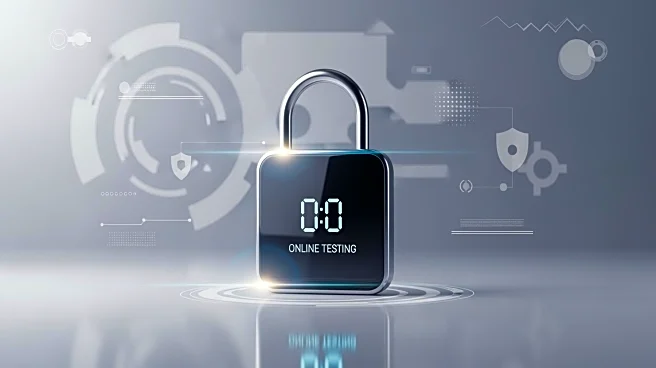What's Happening?
The Law School Admission Council (LSAC) has suspended online LSAT testing in mainland China following the October test due to suspected cheating. Susan Krinsky, LSAC's executive vice president for operations and chief of staff, stated that additional
security measures were implemented for the October test. Despite these efforts, LSAC decided to halt online testing in China, marking the last LSAT administration in the region until further notice. The council has expressed concerns about organized efforts by individuals and companies in China to promote test misconduct, which extends beyond the LSAT to other standardized tests. LSAC is actively working to shut down these operations and pursue legal remedies. The council is committed to maintaining the integrity of the LSAT and will continue to monitor and respond to score irregularities.
Why It's Important?
The suspension of LSAT testing in China highlights the ongoing challenges of maintaining test integrity in the face of organized cheating efforts. This decision impacts Chinese students aspiring to study law in the U.S., potentially delaying their application processes. The move underscores the importance of secure testing environments and the need for robust measures to prevent cheating. LSAC's actions reflect a broader concern within the education sector about the reliability of standardized testing, which plays a crucial role in admissions processes. The situation may prompt other testing organizations to reevaluate their security protocols, especially in regions where test misconduct is prevalent.
What's Next?
LSAC plans to resume testing in mainland China as soon as possible, although it is uncertain if the LSAT will be available by the next international administration scheduled for January 2026. The council will continue to employ various tools to protect the test's integrity both domestically and internationally. Stakeholders, including prospective law students and educational institutions, will be closely monitoring LSAC's efforts to address these security concerns. The situation may lead to increased collaboration between testing organizations and legal authorities to combat cheating enterprises.

















